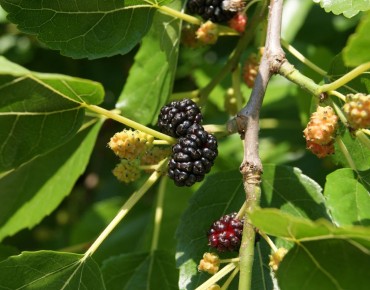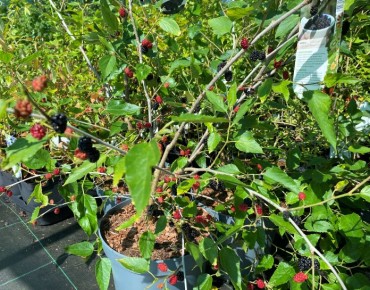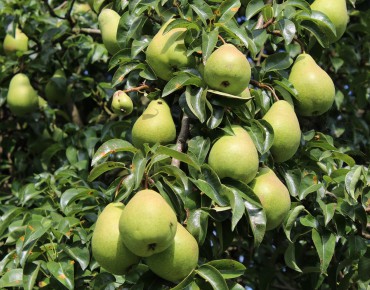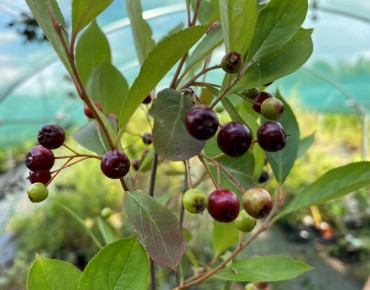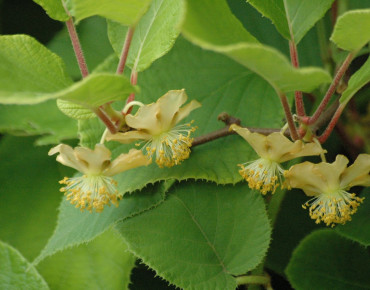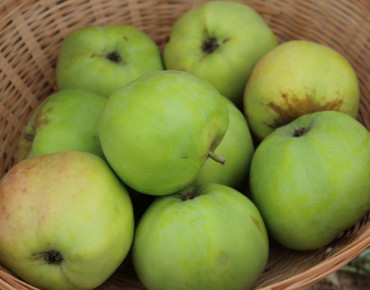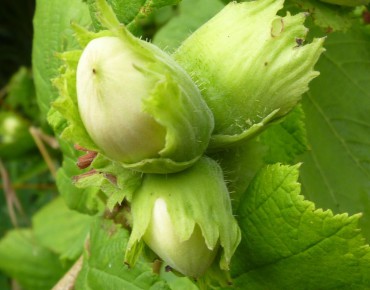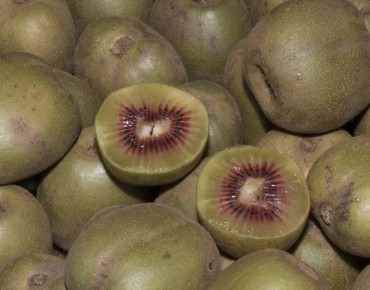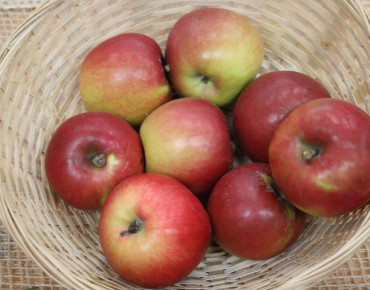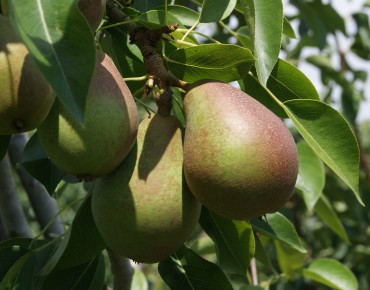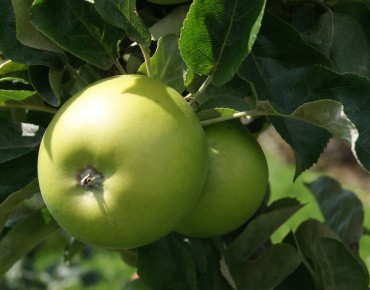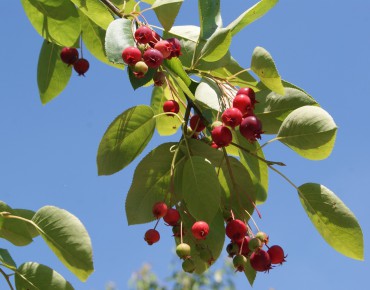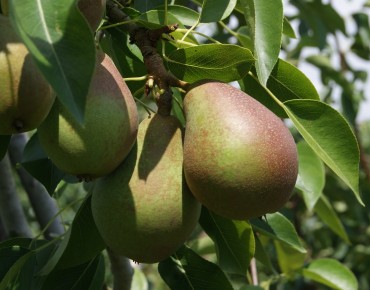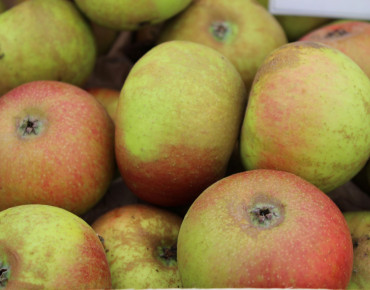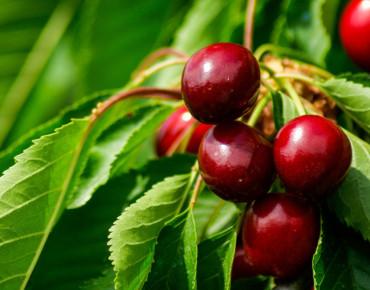Hardy kiwi vine female Weiki
Actinidia arguta Weiki
Description
Hardy kiwi vine female 'Weiki' – Actinidia arguta 'Weiki'
Main interest
The female hardy kiwi vine 'Weiki', also known as kiwai, is a productive cultivar of Actinidia arguta. It is a vigorous, cold-hardy climbing vine with deciduous foliage, producing smooth, bite-sized edible fruits that are sweet and high in vitamin C. As a female plant, 'Weiki' requires a compatible male pollinator nearby to bear fruit. It pairs particularly well with varieties like 'Weima', 'Romeo', or 'Issai'. It thrives on trellises, pergolas, or fences, and performs well in cool-temperate climates.
Origins and characteristics
Geographical origin: German selection – species native to East Asia
Family: Actinidiaceae
Type: Female plant, must be paired with a male for pollination
General description
Mature height: 4 to 6 m
Spread: 3 to 5 m
Growth habit: Vigorous, twining vine
Foliage: Deciduous, glossy green and dense, turning striking red to purple in autumn. Quickly covers supports, walls, or pergolas with lush greenery.
Hardiness: Excellent – down to –25 °C. Perfect for continental, mountain or northern climates.
Flowering and fruiting
Blooming period: May to early June, depending on region
Flowers: Small white clusters, female only (with central stigma). Discreet in appearance but highly productive.
Pollination: Requires cross-pollination. A compatible male plant must be within 5–7 metres for fruit to set properly.
Fruits
Shape and size: Oval, 2 to 3 cm long
Skin: Smooth and green, completely edible – no peeling needed
Flavour: Sweet and fragrant, with hints of gooseberry and classic kiwi, but without the acidity. Popular with children and easy to snack on.
Harvest time: Late September to mid-October. Gradual ripening. Keeps well in the refrigerator for several weeks.
Growing conditions
Light exposure: Prefers full sun but tolerates partial shade if sheltered
Soil: Deep, fertile, cool but well-drained. Slightly acidic to neutral pH preferred
Support: Requires strong trellising, fencing or can be trained along a wall. Needs room to spread out
Planting
Best time: Spring or autumn (avoid frost)
Distance to male plant: Should be planted no more than 5–7 metres from a compatible male for successful fertilisation. Ensure open space to encourage pollinators like bees and bumblebees.
Maintenance
Watering: Keep regularly watered for the first two years to support root development; reduce as the plant matures
Pruning: Winter training to shape and manage growth, followed by light summer thinning after flowering. Remove weak or poorly placed shoots
Propagation
Methods: Hardwood cuttings or grafting
Note: Plants grown from seed may be male or female – gender is not guaranteed
Compatible pollinators
To produce fruit, 'Weiki' must be paired with one of the following male cultivars:
- Actinidia arguta 'Weima' (synchronized blooming)
- Actinidia arguta 'Romeo' (cold-hardy German male)
- Actinidia arguta 'Issai' (partially self-fertile, can aid in pollination)
Use and combinations
Perfect for home orchards, fruiting pergolas, fences or natural screens. Should always be planted with a male Actinidia arguta. Combines well with other female varieties like 'Ken’s Red', 'Jumbo', or 'Geneva'.
Summary
The female hardy kiwi 'Weiki' is a robust, productive climber that yields smooth, flavourful fruits. A great choice for cool-climate gardens – provided it’s planted with a compatible male.
Features
- Common name : Hardy kiwi vine female Weiki
- Family : Actinidiaceae
- Category : fruit tree
- Spread : 3 to 5 m
- Foliage : deciduous
- Fruit : Small, ovoid fruits, 2 to 3 cm, green, sweet, and fragrant
- Harvest : Late September to mid-October
- Use : Pergola, fence, trellis, or against a wall
- Soil : rich and well-drained
- Habit : climbing
- Growth : Very fast
- Enemies : nothing to report
- Possible diseases : resistant to diseases
Expédition & livraison
How does the delivery work?
 As soon as you place your order your plants are selected
As soon as you place your order your plants are selected Each order is processed individually.
Each order is processed individually. Plants are packed, staked and labeled.
Plants are packed, staked and labeled. Packaging is carefully implemented to avoid any problems.
Packaging is carefully implemented to avoid any problems. Packages are ready to be shipped.
Packages are ready to be shipped.
Our delivery methods
Shipping of our plants throughout Europe (except overseas and islands).
Customer reviews










